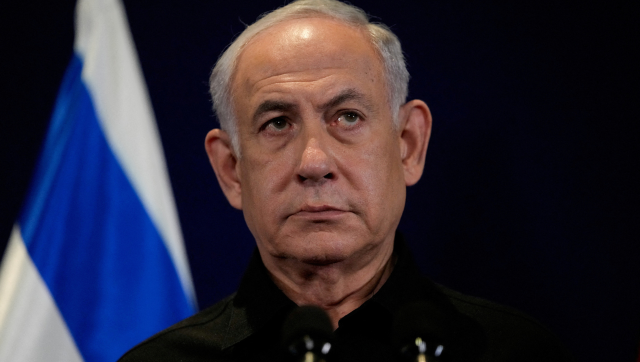A hospital visitation gate was closed to a minister of the Israeli cabinet. A man who had recently lost his wife threw coffee at another’s bodyguards, soaking them. As a third approached to console family who had been evacuated during the trauma, the words “traitor” and “imbecile” were yelled at her. Israelis have come together as a result of the shocking Hamas terrorist attack on October 7. However, there is scant support for a government that is widely accused of letting its guard down and dragging the nation into the roiling Gaza conflict. After a record-breaking career of political comebacks, Prime Minister Benjamin Netanyahu faces a day of reckoning no matter what happens. As a Churchillian strategist who anticipates national-security threats, Netanyahu’s characteristic self-styling has further inflamed public outrage over the 1,300 Israeli dead. Another background is the social division this year over his religious-nationalist coalition’s push for judicial reform, which led to several military reservist walkouts and generated concerns about combat fitness that, some claim, have now been vindicated by blood. “October 2023 Debacle” read a headline in top-selling daily Yedioth Ahronoth, language meant to recall Israel’s failure to anticipate a twin Egyptian and Syrian offensive in October 1973, which eventually led then-Prime Minister Golda Meir to resign. The monopoly of Meir’s center-left Labour party was ended by his removal. For Netanyahu and his long-ruling, conservative Likud party, research fellow at the Shalom Hartman Institute in Jerusalem Amotz Asa-El foresaw a similar end. “It doesn’t matter if there’s a commission of inquiry or not, or whether or not he admits fault. All that matters is what ‘middle Israelis’ think - which is that this is a fiasco and that the prime minister is responsible,” Asa-El told Reuters. “He will go, and his entire establishment along with him.” According to a study published in the Maariv newspaper, 21% of Israelis want Netanyahu to continue serving as prime minister after the conflict. 13% were unsure, while 66% responded with “someone else”. According to the study, if elections were held today, Likud would lose a third of its seats while Benny Gantz’s moderate National Unity party would gain a third, giving him a better chance of winning the presidency. However, Israelis do not currently desire a vote. They demand action, and Gantz, a former military commander, has put aside political differences to join Netanyahu in an extraordinary cabinet as the counteroffensive intensifies into a probable ground invasion. Netanyahu has confined his interactions with the public due to his busy schedule with the senior brass and foreign representatives. He met relatives of some 200 hostages taken to Gaza, without TV cameras present. Amid a mounting outcry, his wife visited one family in mourning. While his top general, defence minister, national security adviser, foreign minister, finance minister, and intelligence chiefs acknowledged failure to foresee and prevent the worst attack on civilians in Israel’s history, Netanyahu has yet to make any statements of personal responsibility. Israel has received vociferous support from the West for its counteroffensive. That might diminish if a ground invasion of Gaza sputters under the weight of mounting Palestinian casualties and military losses. The conflict may also jeopardise two of Netanyahu’s foreign policy pillars: maintaining peace with Saudi Arabia, which is now on hold, and restraint of Iran, which is celebrating the Hamas incursion as a win for a Middle Eastern alliance sworn to the destruction of Israel. The Gaza battle, whose avowed objective is the obliteration of Hamas, might continue months, according to military planners. According to Asa-El, Netanyahu would benefit from a temporary political standstill. Another worry is how long the prime minister’s health will last. He received a pacemaker in July as judicial protests increased. Saturday is his 74th birthday. Some observers have argued that Netanyahu should not be held solely responsible for the divisions among Israeli society and the extent to which they compromised national security. “We forgot to be brothers, and got a war,” Amit Segal, political analyst for the top-rated Channel 12 TV, said on Telegram. “It’s not too late to repair. Stop quarrelling - now.” Asa-El said that several cabinet ministers were being mocked and claimed that cracks were already visible inside the coalition administration. “You hear people in the street who are natural Likud supporters speaking about them with unequivocal hostility,” he said. “The wrath is only going to grow, and this apparent effort by Netanyahu to evade his own responsibility only makes people angrier. He just can’t bring himself to say: ‘We screwed up.’” (With agency inputs)
Israelis have come together as a result of the shocking Hamas terrorist attack on October 7. However, there is scant support for a government that is widely accused of letting its guard down and dragging the nation into the roiling Gaza conflict
Advertisement
End of Article


)

)
)
)
)
)
)
)
)



